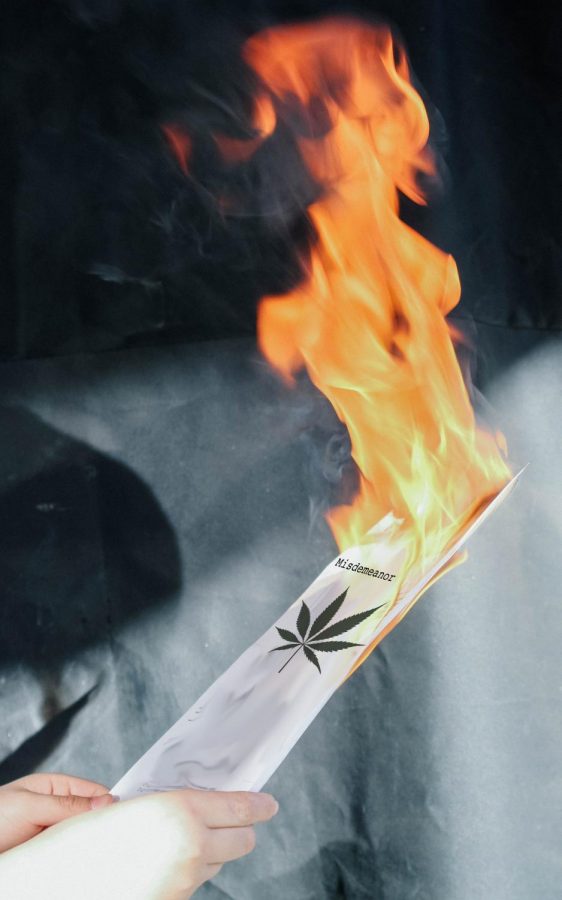Cities to dismiss marijuana misdemeanors
Illustration by Jack Lambert and Yessy Gonzalez
Seattle will join other cities, such as San Francisco, in dismissing thousands of marijuana misdemeanors issued before it was legalized.
March 6, 2018
When you have committed a crime that is no longer a crime, should it still hold you back from job opportunities, education and housing? Seattle Mayor Jenny Durkan and Seattle’s City Attorney Pete Holmes do not think so.
On Feb. 8, Seattle’s mayor and attorney announced that the court will dismiss convictions and dismiss marijuana misdemeanor charges to those that were prosecuted before it was legalized in Washington state in 2012.
In Washington, there was a large increase in marijuana-possession arrests between 1986 and 2010, increasing from 4,000 arrests per year to 11,000 arrests per year, according to a report from The Seattle Times. Within that period there were 240,000 total arrests. Of those arrests, African Americans were three times more likely to be convicted of marijuana crimes.
Durkan began her career working in Seattle’s Municipal Court and what she calls the “war on drugs” has been one of her passions ever since.
By moving back and vacating misdemeanor marijuana possessions, it “is really a necessary step to right the wrongs” of the affected communities of color, Durkan said in an interview with NPR.
As Durkan makes the argument to “right the wrongs,” there are some people, such as Under Sheriff Clayton Myers of the Kittitas County Sheriff’s Department, who do not agree that the move to vacate these crimes is right.
Myers has expressed that he disagrees with vacating the crimes before 2012 because at the time the laws stated that having under 40 grams was a misdemeanor charge. He expressed that although times have changed, and laws change with them, before 2012 marijuana was illegal in Washington state and people knew what they would face if getting in trouble.
“What the Mayor of Seattle is trying to do with dismissing charges is diluting our criminal justice system,” Myers said. “Our criminal justice system is already diluted enough, if they broke the law before marijuana was legal they should still have the charges.”
Durkan is not the only one progressing towards this move. Weeks prior to her announcement, the city of San Francisco had dismissed around 3,000 misdemeanor marijuana charges and would consider reducing 4,900 felony marijuana charges. California and Washington are two states which continue to work break barriers in the marijuana industry.
Although dismissing these charges may not make right all of the expenses and court ordered duties people may have gone through, it could pave a way to make life just a bit easier for some.



